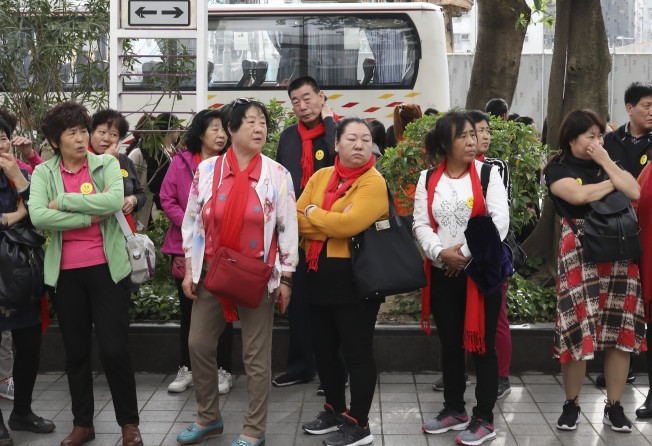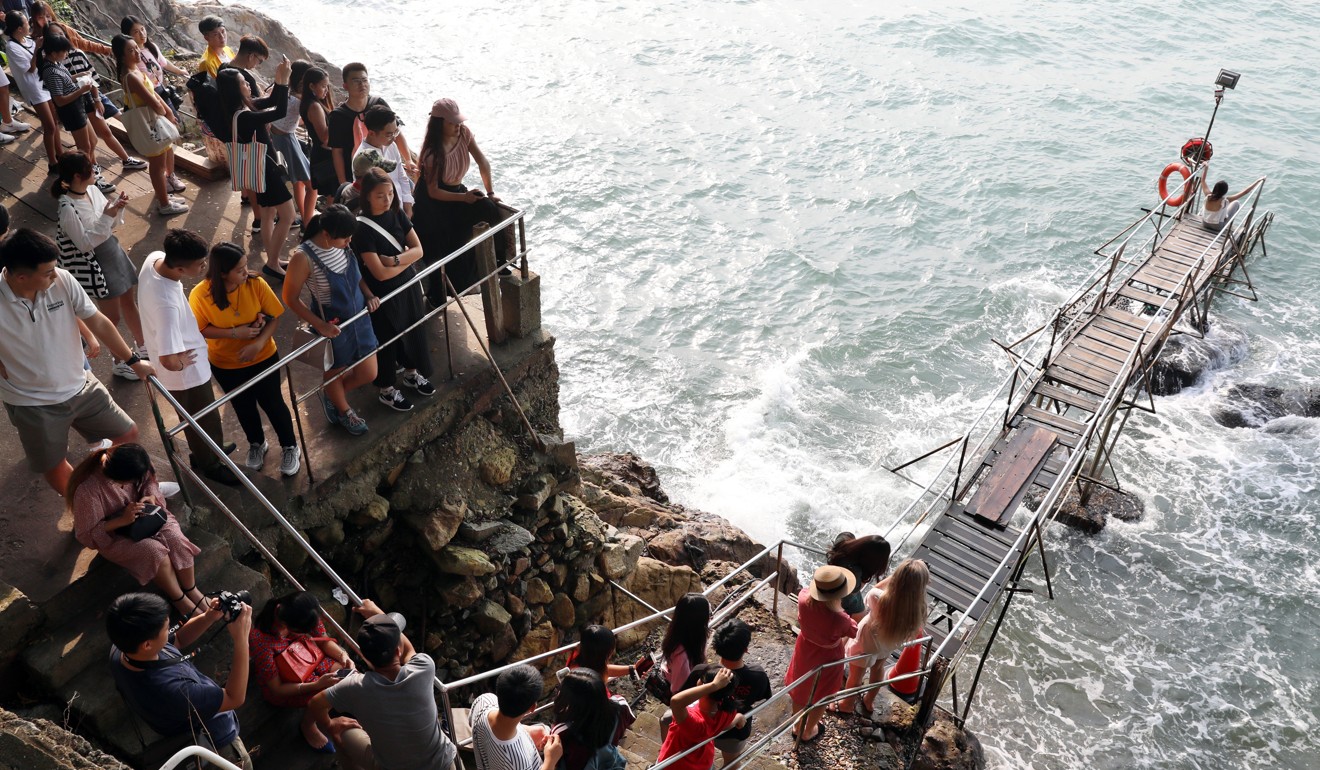Hongkongers should be given HK$10,000 each for enduring the tourist hordes, mostly mainland shoppers
- Peter Kammerer says while the government should try to reduce inconvenience to locals, the better approach to ease anger would be to ensure residents benefit directly from the rising number of visitors, most of whom are mainland shoppers

Tourism success, as far as Hong Kong’s government is concerned, is about the number of visitors and how much they spend. That taps into job creation and taxes – bottom lines for any city management. But too often, the hunger for an ever-bigger slice of the tourism pie has meant paying little or no attention to the rights of residents and damage to the environment. It’s about time there was payback through an annual cash handout and better planning.
For a start, let’s get the terminology right: most of the people who visit our city are shoppers, not tourists. A good 80 per cent of the almost 61 million estimated to have come to Hong Kong this year were from the mainland and the majority were day trippers. They come on group tours for which they pay little and their guides, with an eye on earning percentages from what gets sold, steer them to specific shops and restaurants. Tourist spots are not on their minds, which is why numbers at our theme parks and other attractions are not rising.
At the grass-roots level, on shopping streets and in residential areas and run-down districts, matters are different, though. Jewelry and watches, cosmetics and pharmaceuticals and eating experiences are the top agenda items and that means crowded footpaths, streets clogged by coaches and, in residential buildings where flats have been subdivided to provide cheap overnight accommodation, long lines at lifts.
To add to the distress for residents, some mainlanders have still to learn that smoking is a health hazard and not all are familiar with rules on littering and hygiene. Their presence in such high numbers has increased rents, made public transport less comfortable and dramatically boosted the amount of waste going into landfills.
Whenever these matters are raised, authorities are prone to parrot statistics indicating the importance of tourism to the economy, specifically that it accounts for 4.5 per cent of gross domestic product and provides 6.7 per cent of the workforce. But a responsible government should also think of the community it serves and the need to weigh the benefits of revenue and job creation against the inconvenience caused to society.
It doesn’t help that the maze of departments and bureaus of the administration famously don’t communicate well, making cooperation and coordination problematic. But that’s an on-the-ground matter for planners and police to resolve; an easier issue to deal with is helping ordinary Hongkongers feel that they are benefiting from the attractiveness of the city to outsiders.

A world of cheap travel means Hong Kong is far from being alone in dealing with overtourism. There are a host of lessons from cities like Venice, Paris, Amsterdam, Barcelona and the like to learn from. We could restrict numbers, limit access or impose bans.
But in addition to being more alert to pressure spots where overtourism is taking place, I prefer the Macau approach: an annual cash handout from the government to induce a feel-good factor. If authorities are squeamish about dipping into reserves, they could impose a per-head tourist tax of HK$100 on visitors arriving at entry points. Should day-shoppers rather than genuine tourists be the concern, the measure can be applied at land-crossings.
With more than 6.2 million residents over the age of 18, the revenue earned is only going to lead to an annual payback for each of a few hundred dollars, so other sources have to be turned to. Tourists frequent hotels, restaurants, shops and theme parks, so adding a percentage of taxes paid to the government from them resolves that issue. Which leads to how much each adult Hongkonger should receive annually.
Using the Macau example again, I’d suggest HK$10,000. To my mind, that’s adequate compensation for the crowds, clouds of cigarette smoke at street crossings, nose-to-nose trips on public transport, the wait to get a seat at a favourite restaurant and having to push through huddles of suitcase-toting, map-reading visitors on my way to work.
Peter Kammerer is a senior writer at the Post